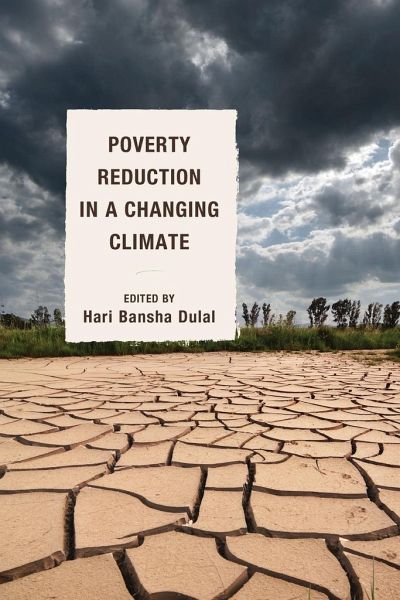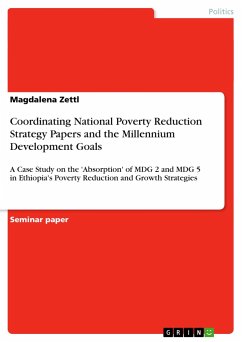
Poverty Reduction in a Changing Climate

PAYBACK Punkte
38 °P sammeln!
Poverty reduction challenges in the twenty-first century are not the same as those from the previous century. The shift is due in no small part to climate change and climate-related weather disasters, such as extreme flood and drought. The magnitude and frequency of such events are only expected to increase in the coming decades, affecting more and more impoverished people across the globe. Poverty Reduction in a Changing Climate, edited by Hari Bansha Dulal, is a work which discusses the new innovations and funding mechanisms which have emerged in response to the rise of climate-related chall...
Poverty reduction challenges in the twenty-first century are not the same as those from the previous century. The shift is due in no small part to climate change and climate-related weather disasters, such as extreme flood and drought. The magnitude and frequency of such events are only expected to increase in the coming decades, affecting more and more impoverished people across the globe. Poverty Reduction in a Changing Climate, edited by Hari Bansha Dulal, is a work which discusses the new innovations and funding mechanisms which have emerged in response to the rise of climate-related challenges in the twenty-first century. Dulal and the text's contributors explore the synergies and implications of those innovations with respect to poverty alleviation goals. This collection brings together a range of scholars from different backgrounds, ranging from political science, economics, public policy, and environmental science, all analyzing poverty reduction challenges and opportunities from different, forward-thinking perspectives.













